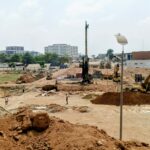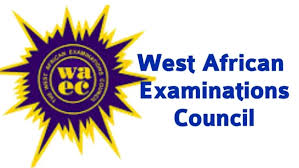By Funmilayo Adeyemi
Stakeholders in the education sector have, again, criticised the West African Examinations Council (WAEC) over the sudden change of the recently released 2025 West African Senior School Certificate Examination (WASSCE) results.
The stakeholders, who spoke in interviews with the News Agency of Nigeria (NAN) in Abuja, are demanding independent investigations into the matter and overhaul of the council’s management team.
They contended that, subjecting WASSCE, a standardised evaluation for secondary school leavers and basic requirement for tertiary institution admissions, to “trial and error”, is unacceptable.
According to them, inconsistencies in such high-stakes examinations could damage the credibility of Nigeria”s academic qualifications, both locally and internationally.
It would be recalled that WAEC, on July 4, released the 2025 WASSCE results and announced that only 38.32 per cent of its 1,969,313 candidates secured credits in five subjects, including English Language and Mathematics.
The mass failure had attracted strong criticism, with parents and some groups calling for the cancellation of some of the papers, especially English Language and Mathematics.
Subsequently, WAEC said it discovered technical glitches during an internal review and temporarily withdrew access to the results.
After reopening its online results portal on Friday, Aug. 10, the pass rate was revised upward to 62.96 per cent, effectively doubling the initial figure.
At a news conference in Lagos, WAEC said, after reviewing the process, the new statistics indicated that a total of 1,239,884 of the 1,969,313 candidates, representing 62.96 per cent, now have five credits including English and Mathematics.
The council linked the initial discrepancies to “serialisation issues” in subjects such as Mathematics, English, Biology, and Economics.
The development, however, sparked reactions from stakeholders, including candidates, parents, and teachers.
The Founder, Exam Ethics Marshall International (EEMI), Ike Onyechere, questioned the council’s credibility and the integrity of Nigeria’s education assessment system.
Onyechere described the development as “a national disaster,” accusing WAEC of “bastardising the entire education process.”
“You cannot make such a serious examination, a subject of trial and error. Today the pass rate is 38 per cent, tomorrow it becomes 63 per cent.
“How are we supposed to trust the authenticity of these results?,” he queried.
Onyechere called on the Federal Ministry of Education, the Presidency, and the National Assembly to launch an urgent investigation into the matter, insisting that those at the helm of affairs in WAEC should be reshuffled.
“All the up and down with results, is it just in Nigeria or is it happening in Ghana, in Sierra Leone, in Gambia, all those West African countries?.
“And, if it is happening only in Nigeria, then, the Federal Ministry of Education has to tell the country what exactly is going on,” he said.
Onyechere dismissed the explanation WAEC gave on serialisation of papers as “technical excuses” that failed to address deeper administrative lapses.
“This is not a joke. We are gambling with the future of these students. Universities, employers, and foreign institutions rely on these results.
“If people can no longer trust them, the consequences will be far-reaching.
“So, those people with the responsibility for leadership should step up and review the matter and carry out thorough investigations with dire consequences,” he said.
A teacher, Oluwaseun Omotubora, said that the mass failure recorded in the earlier results was a reflection of how the examinations were conducted.
Omotubora said one could not expect a better performance in a systemic failure which led to writing of examinations midnight and with torchlight.
She said, upon noticing the mass failure, a responsible examination body should have recalled the answer sheets of the affected subjects, reviewed them and found out the problems before releasing the results.
She said WAEC should have called for fresh examinations in the affected subjects, rather than creating the avenue for doubting the integrity of the body and the process.
A parent, Mrs Ifeoluwa Atteh, called for an independent investigation to determine whether candidates were unfairly failed or passed in either of the two results released.
Atteh urged caution, calling for a deeper analysis to ensure the results truly reflected improved learning outcomes and not just deliberate adjustments.
“The whole WAEC results is confusing. Does it mean that those results earlier released just changed now or what,” she questioned.
She called for thorough investigations to ensure the authenticity or otherwise of the newly released results.
Another parent, Nathaniel Adamu, attributed the glitches purported by WAEC to low investments in education budget.
Adamu noted that if the country could get it right in its education budget, all examination bodies would conduct credible examinations for candidates.
He said that adequate education budget would curb the lingering examination malpractices and give examination bodies the resources to provide infrastructure that would enhance their job.
“Look at the budgets of most of the state governments, little funds are allocated to the education sector.
“Infrastructure, educational aids and other facilities to achieve qualitative education are not provided and the teachers are not well remunerated and motivated.
“In turn, teachers are not giving their best because somebody who is not well paid will cut corners.
“We also have the challenge of examinations malpractice being encouraged by parents who are willing to do anything to ensure their children pass,” he said.
He called on the government at all levels to make deliberate attempt to revive the education sector.
Also, Mrs Chidinma Nwafor, a parent and teacher, said the back and forth by WAEC in the release of the results has made the council to lose its credibility.
Nwafor noted that the public outcry and pressure on the examination body after the earlier released results compelled the reviewed results, which could not be trusted.
Meanwhile, most of the candidates who spoke to NAN said that in the earlier results released by WAEC, they scored F9, D7, or E8 in both or either English Language and Mathematics.
They said in the new results uploaded by the examination body, their scores in both or either of the two subjects were reviewed to credits.
They said the reviewed results have assuaged their earlier frustration of clearing other subjects, but failed in two compulsory subjects- Mathematics and English Language.
Chisom Jonah, who sat for the examinations in a public school in Abuja, said her score in English Language was reviewed from D7 to C6.
“I cleared all the subjects I sat for except the English Language which had been reviewed now.
“I am excited with the new results because I can now pursue my university admission. I scored 230 in JAMB and I applied for Mass Communication in a Federal University,” she said.
Another candidate, Favour Akindele, said her Mathematics was reviewed from D7 to C4 in the results newly uploaded by WAEC.
While expressing excitement on the review, Akindele raised the concern that such inconsistency could create credibility problem for the examination body (NAN) (www.nannews.ng)
Edited by Rotimi Ijikanmi











